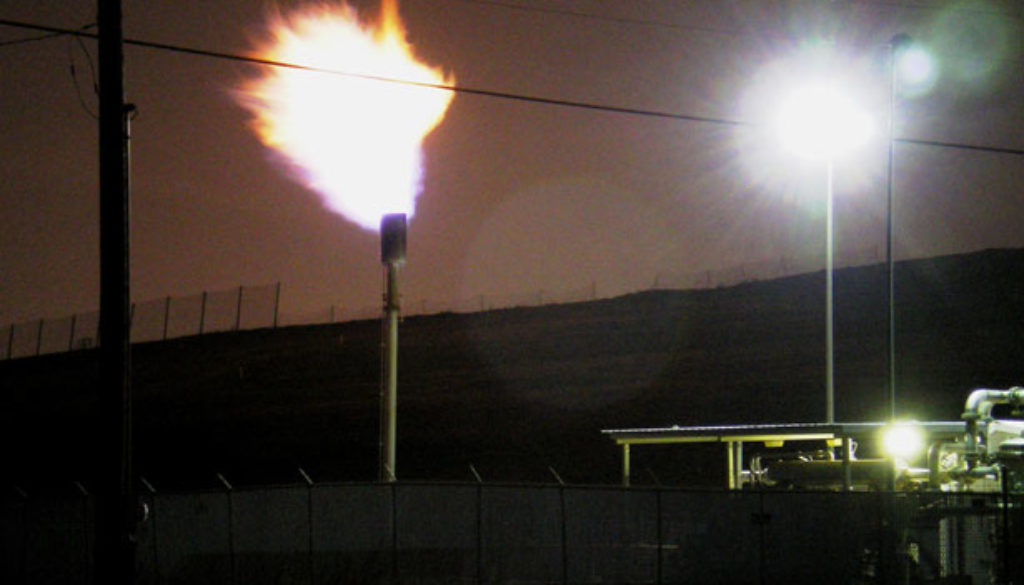Fine Print Shows Exxon Wants Weaker EPA Methane Limits
By David Doniger, Natural Resources Defense Council
Exxon last month put its weight behind another climate pollution rollback proposed by the Trump administration. The oil giant backed EPA’s move to weaken the Obama-era EPA rules to cut methane leaks from the oil and gas industry.
The EPA proposal that Exxon backs would cut companies’ leakage monitoring obligations in half (from every six months to once a year) and give them twice as long to fix the leaks they find (two months instead of one).
Advocating weaker controls on methane, a powerful climate-changing pollutant, was a pretty unsurprising move by the world’s second largest natural gas producer.
But Exxon’s artfully-worded letter gave some readers the false impression that the company actually opposes Trump’s methane rollback, resulting in some good press it didn’t deserve. One story even said “Exxon Mobil opposes weakening Obama-era emissions rules.”
How did Exxon manage to garner some favorable press for the opposite of its actual position?

Well, Exxon’s letter to EPA opens with this tantalizing sentence:
“ExxonMobil supports federal regulatory standards to mitigate methane emissions for both new and existing source oil and gas facilities, and we encourage EPA to continue to pursue cost-effective regulations.”
Sounds promising, but the rest of Exxon’s letter tells a different story. After some boilerplate hyping its voluntary corporate activities, the letter gets down to business on page 2:
“We appreciate EPA’s efforts to make this comprehensive rule-making more cost-effective…. We support the comments submitted by the American Petroleum Institute to further enhance the cost effectiveness of the rule while still maintaining the core focus on methane emissions reduction.”
The call for “more cost-effective” regulation is Exxon’s way of supporting EPA’s proposal to cut leak monitoring in half and double repair times. And the American Petroleum Institute’s comments that Exxon endorsed not only enthusiastically supportEPA’s proposal – they ask for myriad further changes to weaken the leak rules now in place.
The EPA rollback would put federal rules well behind what leading states, like Colorado and California, already require.
To give Exxon an ounce of credit amidst this pound of criticism, the company’s letter does state support, however vague, for EPA’s regulating methane emissions from existing oil and gas industry operations, not just new ones. But there is less there than meets the eye.
The Obama-era regulations were a good start, but even they reached only new operations – oil and gas wells drilled and processing equipment installed after the middle of 2015. The overwhelming majority of leakage of climate-warming methane – and other smog-forming and cancer-causing chemicals – comes from wells and equipment that started up before that date. Those “existing sources” account for more than 90 percent of the industry’s dangerous pollution.
The Obama EPA was working on standards to extend methane leak detection and repair requirements to these existing sources. In another political universe, those rules would be on the books by now.
But as one of his first acts as President Trump’s EPA administrator, Scott Pruitt triumphantly cancelled those plans. In response, New York is leading 14 states and the Environmental Defense Fund in suing his successor, Andy Wheeler, to force EPA action under the Clean Air Act to curb methane leakage from existing oil and gas operations.
So Exxon’s vague endorsement of federal regulation of methane leakage from both new and existing sources might seem a positive step – except when you see that it’s paired with support for weakening the new source standards, the only EPA methane regulations on the books.
If Exxon wants to cut methane leak monitoring for new sources in half, imagine what watered down measures the oil giant would think are “cost effective” for existing operations.
Exxon’s methane letter is a lot like the company’s much-touted support for a carbon tax, which came Trojan-horse style with demands to roll back the Clean Air Act and immunize oil companies from climate damage lawsuits.
Here again, what may have looked like a man-bites-dog story is actually just another case of dog-bites-man.

